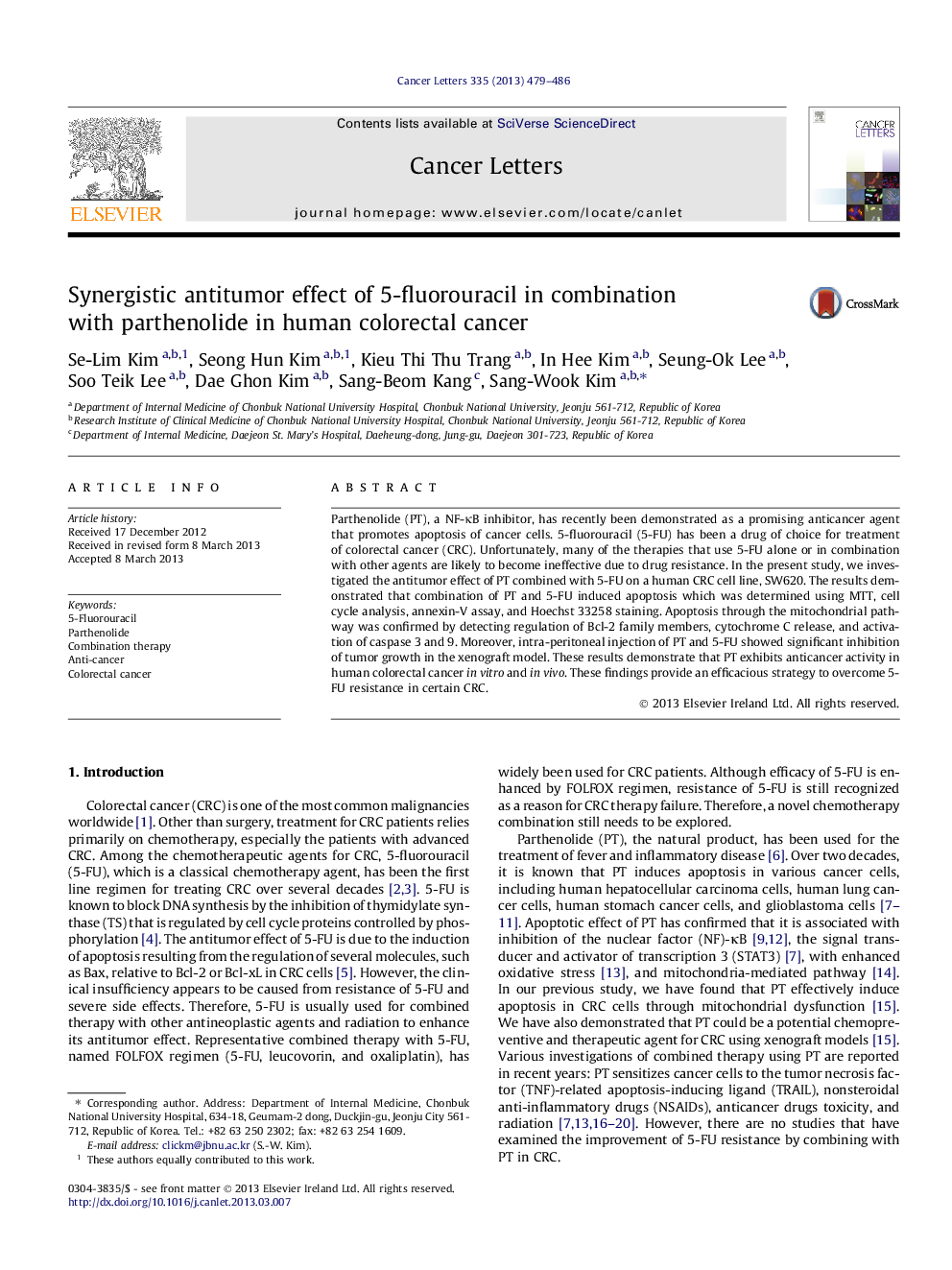| Article ID | Journal | Published Year | Pages | File Type |
|---|---|---|---|---|
| 10899960 | Cancer Letters | 2013 | 8 Pages |
Abstract
Parthenolide (PT), a NF-κB inhibitor, has recently been demonstrated as a promising anticancer agent that promotes apoptosis of cancer cells. 5-fluorouracil (5-FU) has been a drug of choice for treatment of colorectal cancer (CRC). Unfortunately, many of the therapies that use 5-FU alone or in combination with other agents are likely to become ineffective due to drug resistance. In the present study, we investigated the antitumor effect of PT combined with 5-FU on a human CRC cell line, SW620. The results demonstrated that combination of PT and 5-FU induced apoptosis which was determined using MTT, cell cycle analysis, annexin-V assay, and Hoechst 33258 staining. Apoptosis through the mitochondrial pathway was confirmed by detecting regulation of Bcl-2 family members, cytochrome C release, and activation of caspase 3 and 9. Moreover, intra-peritoneal injection of PT and 5-FU showed significant inhibition of tumor growth in the xenograft model. These results demonstrate that PT exhibits anticancer activity in human colorectal cancer in vitro and in vivo. These findings provide an efficacious strategy to overcome 5-FU resistance in certain CRC.
Related Topics
Life Sciences
Biochemistry, Genetics and Molecular Biology
Cancer Research
Authors
Se-Lim Kim, Seong Hun Kim, Kieu Thi Thu Trang, In Hee Kim, Seung-Ok Lee, Soo Teik Lee, Dae Ghon Kim, Sang-Beom Kang, Sang-Wook Kim,
